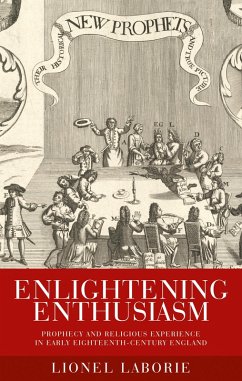
The Conversion of Herman the Jew (eBook, ePUB)
Autobiography, History, and Fiction in the Twelfth Century
Übersetzer: Novikoff, Alex J.
Versandkostenfrei!
Sofort per Download lieferbar
25,95 €
inkl. MwSt.
Weitere Ausgaben:

PAYBACK Punkte
13 °P sammeln!
Sometime toward the middle of the twelfth century, it is supposed, an otherwise obscure figure, born a Jew in Cologne and later ordained as a priest in Cappenberg in Westphalia, wrote a Latin account of his conversion to Christianity. Known as the Opusculum, this book purportedly by "Herman, the former Jew" may well be the first autobiography to be written in the West after the Confessions of Saint Augustine. It may also be something else entirely. In The Conversion of Herman the Jew the eminent French historian Jean-Claude Schmitt examines this singular text and the ways in which it has divid...
Sometime toward the middle of the twelfth century, it is supposed, an otherwise obscure figure, born a Jew in Cologne and later ordained as a priest in Cappenberg in Westphalia, wrote a Latin account of his conversion to Christianity. Known as the Opusculum, this book purportedly by "Herman, the former Jew" may well be the first autobiography to be written in the West after the Confessions of Saint Augustine. It may also be something else entirely. In The Conversion of Herman the Jew the eminent French historian Jean-Claude Schmitt examines this singular text and the ways in which it has divided its readers. Where some have seen it as an authentic conversion narrative, others have asked whether it is not a complete fabrication forged by Christian clerics. For Schmitt the question is poorly posed. The work is at once true and fictional, and the search for its lone author-whether converted Jew or not-fruitless. Herman may well have existed and contributed to the writing of his life, but the Opusculum is a collective work, perhaps framed to meet a specific institutional agenda. With agility and erudition, Schmitt examines the text to explore its meaning within the society and culture of its period and its participation in both a Christian and Jewish imaginary. What can it tell us about autobiography and subjectivity, about the function of dreams and the legitimacy of religious images, about individual and collective conversion, and about names and identities? In The Conversion of Herman the Jew Schmitt masterfully seizes upon the debates surrounding the Opusculum (the text of which is newly translated for this volume) to ponder more fundamentally the ways in which historians think and write.
Dieser Download kann aus rechtlichen Gründen nur mit Rechnungsadresse in A, D ausgeliefert werden.













